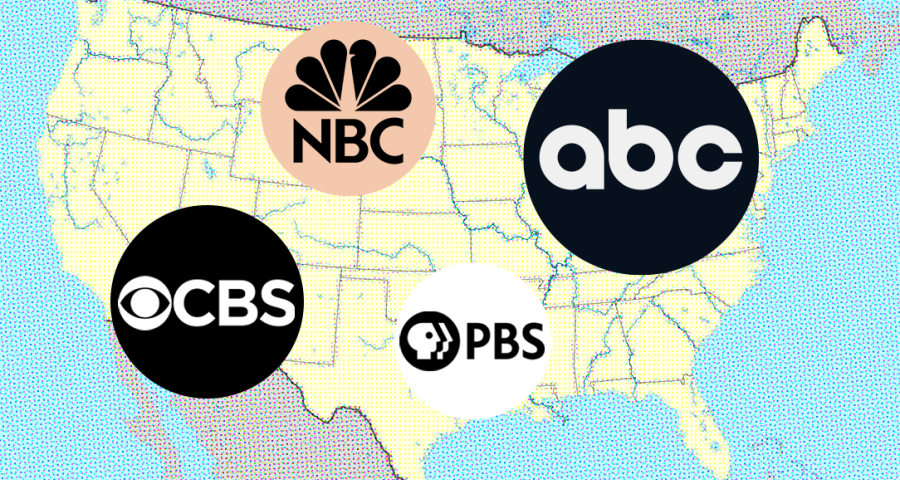
An extensive new analysis of the news segments in the broadcast evening news programs of ABC, CBS, NBC and PBS has found that broadcasters devoted most of their economic coverage to the stock market (40% of all economic coverage) and inflation (22%) during Q1 2024 while devoting very little time to many other important economic issues like wage growth, national economic growth, economic inequality, unions, national debt, taxes, corporate profits and social security.
The study, which did not cover cable news, found that broadcast evening news by commercial broadcast networks ABC, CBS and NBC “offered relatively sparse coverage of the state of the American economy in the first three months of the year — the flagship news programs on ABC, CBS, and NBC only registered a combined 88 segments featuring significant discussions of economic policy or macroeconomic conditions over the period from January through March.”
In contrast, viewers of “PBS’ NewsHour were offered a far more detailed perspective of the economy, with that program alone providing 122 qualifying economic news segments during the same period" the researchers said.
The researchers noted that the NewsHour benefitted from its hour-long format versus its commercial broadcast competitors, which each air 30-minute evening news programs and leave less time for news reporting. But unlike its broadcast competitors, PBS does not air its flagship news program on weekends.
The study also found that “[a]ll four major broadcast networks (ABC, CBS, NBC, and PBS) covered positive economic news sparingly during the first quarter of the year — job creation was covered in 28 segments, or just 13%; continued wage growth was covered in 12 segments, or 6%; and the nation’s economic growth was covered in just 8, or 4%, of all segments. Corporate profits, which reports have shown were growing faster than the rate of inflation in recent years, were mentioned in just 4 of all 210 qualifying segments, or 2%, and were never mentioned in tandem with inflation.”
The study also chided the networks for sparce coverage of "government spending and, in particular, repeated Republican threats to shut down the federal government" by noting that “a regular viewer of any of the three major [commercial] broadcast outlets (ABC, CBS, and NBC) would be forgiven for not realizing that the federal government was on the verge of partial shutdown twice during the first quarter of the year alone. Coverage of government spending — inclusive of budget proposals, continuing resolutions, and major legislation affecting federal spending — only drew coverage in 15 segments across those three networks in the first quarter of 2024.”
In addition, “none of the corporate broadcast networks discussed the national debt and federal budget deficit during their coverage” and they also failed to note that “the annual federal budget deficit has decreased under President Joe Biden in each of the past two full fiscal years, after spiking under former President Donald Trump in response to the COVID-19 pandemic.”
The full study, with a detailed breakdown of the economic coverage by network, is available here.
To analyze the content of the newscasts, Media Matters said that it searched transcripts in the SnapStream and Kinetiq video databases for all original episodes of ABC's World News Tonight, CBS' Evening News and Weekend News, NBC's Nightly News, and PBS' NewsHour, including any weekend editions, for any of the terms “debt,” “deficit,” “growth,” “inequality,” “inflation,” “jobs,” “tax,” “revenue,” “supply side,” “trickle down,” “GDP,” “GNP,” “income,” “labor,” “union,” “trade,” “tariff,” “Social Security,” “Medicare,” “Medicaid,” “Affordable Care Act,” or “retirement” or any variations of any of the terms “economy,” “spend,” “wage,” “wealth,” “unemployment,” “product,” “employ,” “Obama care,” or “health care” from January 1, 2024, through the first quarter of the year ending March 31, 2024.







